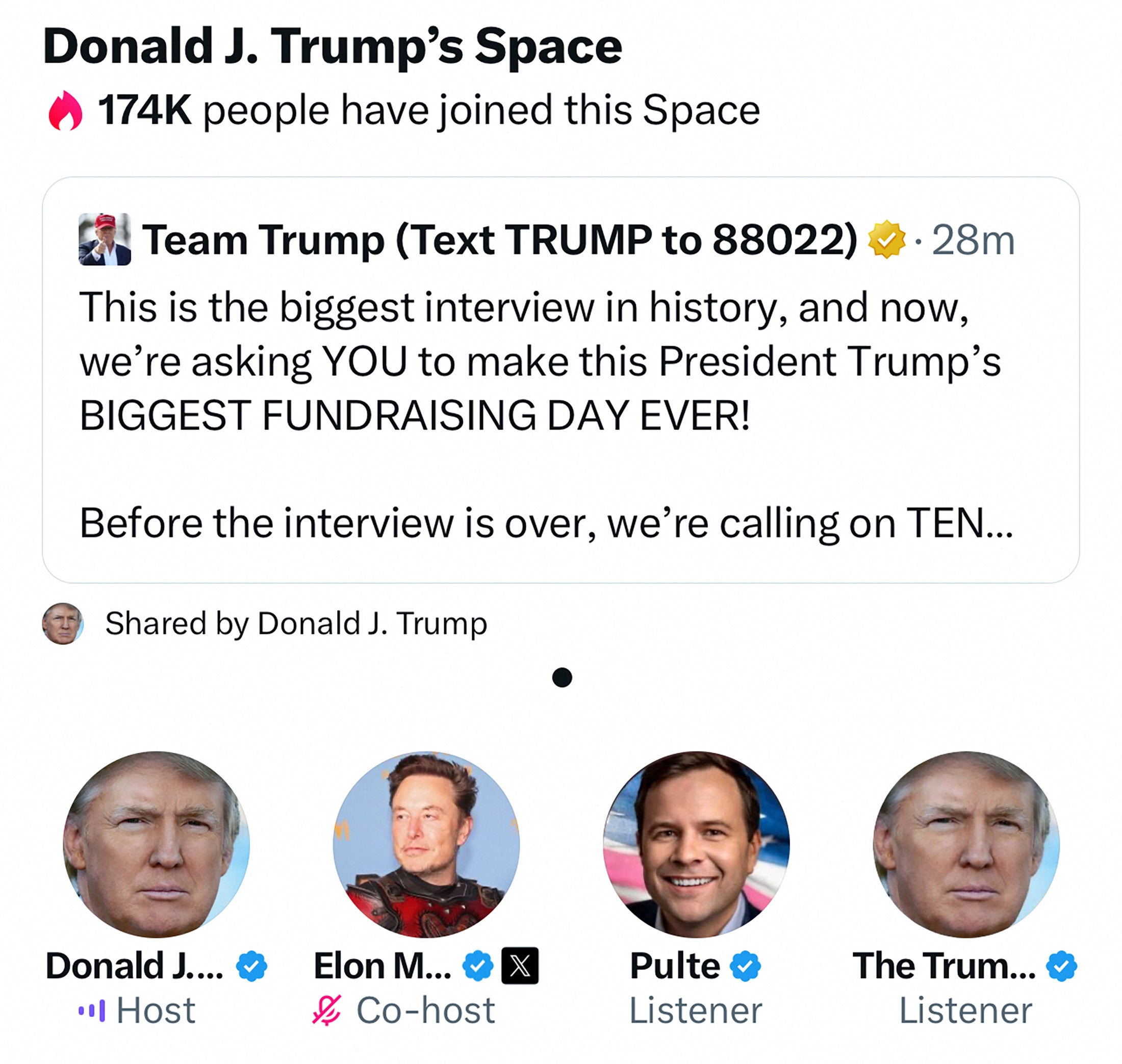Was a cyber attack really to blame for Musk-Trump interview tech issues? Expert isn’t buying it
Cyber security expert tells The Independent that Musk’s version of events are ‘unbelievable’ and ‘theatrical’
Your support helps us to tell the story
From reproductive rights to climate change to Big Tech, The Independent is on the ground when the story is developing. Whether it's investigating the financials of Elon Musk's pro-Trump PAC or producing our latest documentary, 'The A Word', which shines a light on the American women fighting for reproductive rights, we know how important it is to parse out the facts from the messaging.
At such a critical moment in US history, we need reporters on the ground. Your donation allows us to keep sending journalists to speak to both sides of the story.
The Independent is trusted by Americans across the entire political spectrum. And unlike many other quality news outlets, we choose not to lock Americans out of our reporting and analysis with paywalls. We believe quality journalism should be available to everyone, paid for by those who can afford it.
Your support makes all the difference.Elon Musk has blamed a “massive” cyber attack for the 40-minute delay to his live interview with former president Donald Trump on X Spaces on Monday night.
“There appears to be a massive DDOS attack on X. Working on shutting it down. Worst case, we will proceed with a smaller number of live listeners and post the conversation later,” the controversial tech billionaire posted on X, referring to a Distributed Denial of Services (DDoS) attack where an attacker floods a service with a large amount of internet traffic so that it stops working.
But experts have poured cold water on Musk’s claim that the social media platform came under attack.
Jake Moore, global cyber security advisor at cyber security company ESET, told The Independent that Musk’s version of events are “unbelievable” and “theatrical.”
Instead, he believes it is far more likely that the servers on Spaces simply couldn’t cope with the volume of people trying to join.
“I don’t think it was a DDoS in its true form. It’s usually committed by malicious threat actors – so cyber attackers. It’s not officially a cyber attack, it doesn’t actually steal any data, but it does knock a website offline. It’s very orchestrated by a group or individual,” he said.
“I think Musk may have been a bit too quick to react, a bit too theatrical in his terminology to create a storm on the platform.”

Moore explained that the tell-tale sign of a DDoS attack is when an entire platform suffers an outage, but last night users were still able to access X while being unable to view the feed on Spaces.
“We would’ve seen X dropped off entirely as a platform,” Moore said.
“We have seen this before. Usually on Meta with Whatsapp, Facebook, Instagram, sometimes all three go at the same time. To find a subset of X knocked offline for 40 minutes and nowhere else, that is why it’s unlikely and, quite frankly, unbelievable.”
That said, Moore said he believes security at X has suffered as a result of the brutal cuts to X’s workforce since Musk took over Twitter and rebranded it X last year.
Musk revealed in an interview with the BBC at the time that he had cut its workforce from 8,000 to around 1,500.
Moore said that many staff who lost their jobs would have worked on the platform’s security.

“We also have to remember over a year ago Musk did remove lots of roles from the platform, including security and technical staff, and I do think that would’ve played a part in this technical overload of listeners,” he said.
On Monday night, some 115,000 viewers managed to join the highly-anticipated interview between Musk and Trump despite the glitch, but many more complained they were unable to access it and were instead met with error messages.
By the time the feed was up and running, 1.2 million people had joined to watch the former president reel off a familiar list of complaints and grievances he has been airing for years.
The technical problems are reminiscent of the glitches Florida Governor Ron DeSantis suffered last year when he launched his bid to become the Republican presidential nominee on Spaces with Musk.
Back then, the hour-long broadcast kept cutting out and many viewers were unable to join the feed, leading to a flood of memes and online criticism – including from Trump – mocking Musk and DeSantis.

Join our commenting forum
Join thought-provoking conversations, follow other Independent readers and see their replies
Comments